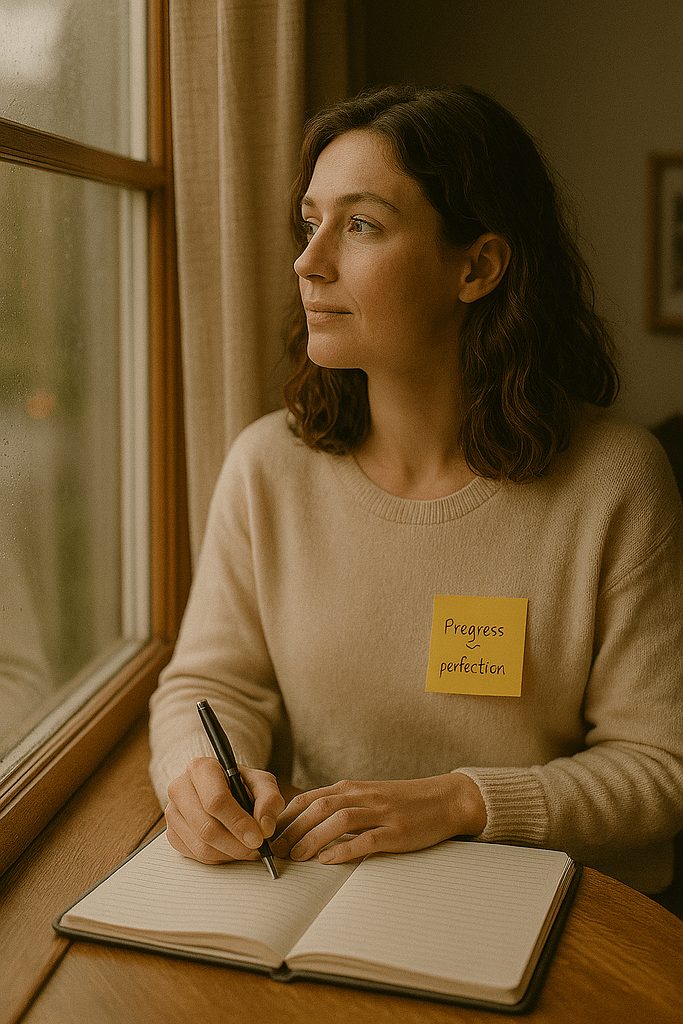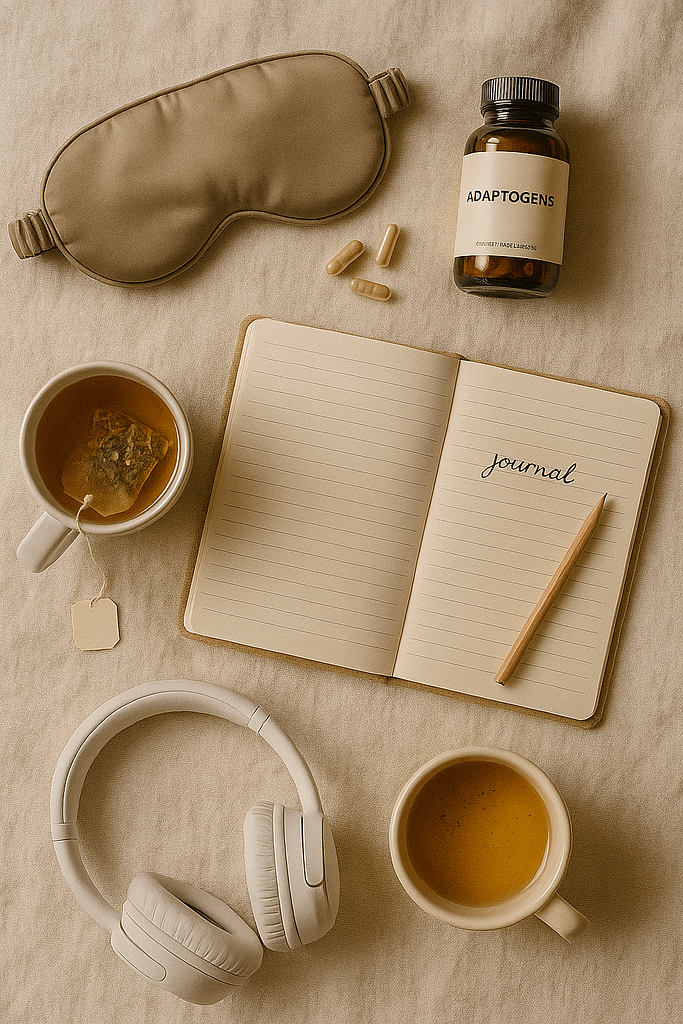✍️ Introduction
I didn’t see it coming. I just thought I was “tired.”
By the time I hit the wall, burnout had already taken root. My sleep was broken. My mind felt foggy all day. Work felt like a chore—even the parts I used to love. I was snapping at people I cared about, and the smallest things overwhelmed me.

I wasn’t lazy or unmotivated. I was depleted.
Burnout isn’t solved with a weekend off. It’s a nervous system crisis, and recovery is a process. Here are the 7 science-backed strategies that helped me truly recover—and the research behind them.
1️⃣ 🛌 Protect Sleep Like It’s Sacred
Sleep isn’t just “rest”—it’s when your body performs neurological and emotional repair.
Personal insight:
The moment I made sleep my priority (instead of my reward), everything shifted. I started using a wind-down alarm 60 minutes before bed, cut evening screen time, and began supplementing with magnesium glycinate.

The science:
📚 A 2019 study in Sleep Health found that quality sleep is directly correlated with emotional resilience and lower cortisol levels.
📚 The WHO classifies shift work and sleep deprivation as probable carcinogens—proving just how foundational sleep truly is.
Affiliate-ready support:
→ Magnesium Glycinate on iHerb
→ Blue Light Glasses on Amazon
2️⃣ 🌿 Create Two “Tech-Free Zones” Per Day
Constant screen use overstimulates your brain and drains your attention.
My shift:
I started leaving my phone in another room during breakfast and one hour before bed. It felt impossible at first. But within a week, my mind felt less reactive, and I was less anxious without knowing why.

Research says:
📚 A 2020 study from Psychiatry Research found a 25% reduction in perceived stress levels after just one week of scheduled digital detoxes.
3️⃣ 🧘♀️ Build a Nervous System Buffer (Breathwork + Gentle Movement)
Burnout isn’t just mental—it’s physiological. My body was stuck in fight-or-flight.
What worked:
Gentle breathwork before work, light yoga/stretching at lunch, and a 5-minute walk without headphones became my daily nervous system hygiene. Think of it as brushing your brain.
Science insight:
📚 Stanford neuroscientist Dr. Andrew Huberman explains that slow exhales (especially longer than inhales) engage the parasympathetic system—reducing heart rate and cortisol.
📚 A 2021 review in Frontiers in Psychology confirmed breath-focused movement reduced burnout scores in healthcare workers by 34%.
4️⃣ 🧠 Cognitive Offloading: Write Everything Down
Your brain isn’t meant to hold every task, reminder, or worry.
My realization:
I thought I was “organized” because I kept things in my head. But I was burning mental energy every second trying not to forget anything. Once I adopted a daily brain dump (before bed), my sleep and focus improved.

The facts:
📚 Cognitive load theory shows that mental clutter decreases working memory and problem-solving capacity. Externalizing thoughts is a known way to recover cognitive bandwidth.
5️⃣ ❤️ Schedule “No-Productivity” Time on Purpose
Burnout thrives in environments where worth = output.
The hardest part:
I felt guilt when I wasn’t being useful. So I scheduled 30 minutes a day for what I called “Unproductive Joy”—reading fiction, gardening, coloring, even napping. Slowly, joy became something I allowed, not earned.

Research insight:
📚 A study in Occupational Health Psychology (2020) found that restorative leisure activities (not tied to productivity) significantly accelerated emotional recovery in burned-out individuals.
6️⃣ 🤝 Talk to Someone Who Gets It
Healing needs witnessing. Talking rewires shame.
What I did:
I opened up to one friend. Then eventually a therapist. Just saying “I think I’m burned out” started my healing. Even before solutions, the permission to be honest helped me breathe deeper.

Scientific backing:
📚 Talk therapy, especially CBT, has been shown to reduce burnout symptoms by 40–50% (source: Journal of Mental Health, 2021).
📚 Shared experience lowers the physiological response of stress (per social buffering theory).
7️⃣ 🧾 Redesign My “Enough”
Burnout often comes from unrealistic expectations—usually internal.
The biggest shift:
I redefined success. Instead of “doing it all,” I made peace with “done is better than perfect.” I started measuring my days by presence, not productivity. That’s when real healing began.

A quote that changed me:
“You are not behind. You’re on a human timeline.” – Brianna Wiest
🧪 Bonus: Tools That Helped Me
🔹 Sleep Mask with Bluetooth Audio – Amazon
🔹 Adaptogens for Stress (Ashwagandha) – iHerb
🔹 Journals or Guided Prompts – Amazon

📊 Burnout Recovery Tracker (Freebie Teaser)
Want to track your own healing?
We’re releasing a free Burnout Recovery PDF Tracker next month on Substack.
✅ Mood log
✅ Sleep + Tech hygiene
✅ Daily nervous system check-ins
✅ Progress journal
Subscribe here to get it first →
💬 Final Thoughts
Burnout doesn’t make you weak. It makes you human.
Recovery isn’t a straight line—it’s a gentle spiral back to yourself.
Healing is slow, but powerful. I don’t feel like the old me—I feel like the real me. Stronger, softer, steadier.
📬 Ready to go deeper?
📰 Subscribe to the FitWisePro Weekly Newsletter
📸 Follow @FitWisePRO on Instagram
📌 Pin this for later on Pinterest

